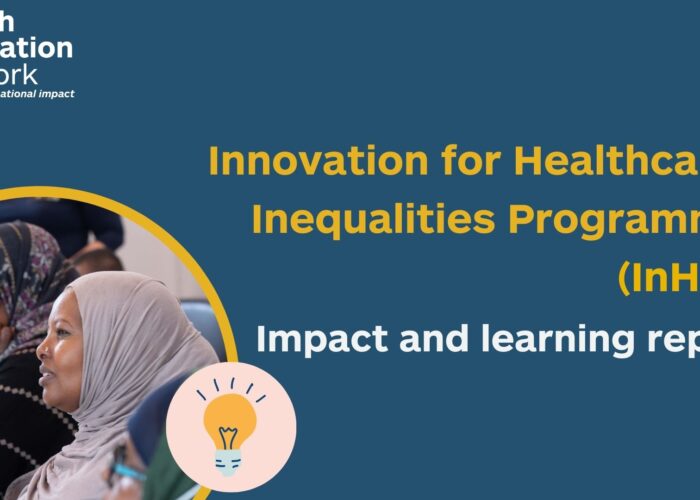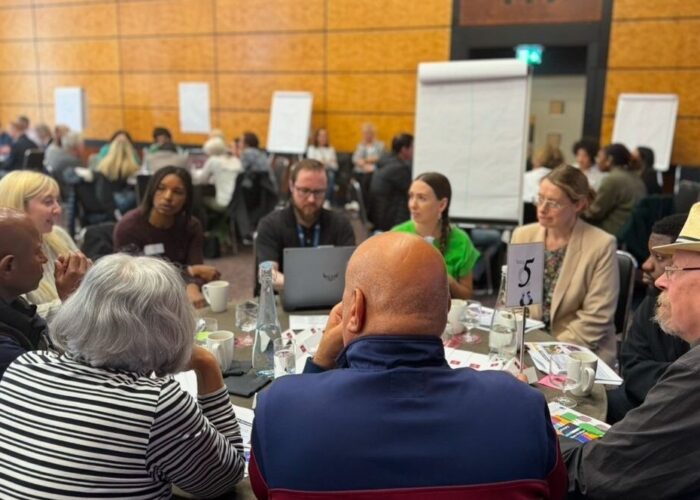 Ralphael Oghagbon, ICHP Health Economist, outlines the results of a pilot looking at how primary care teams can join the digital revolution to improve patient care.
Ralphael Oghagbon, ICHP Health Economist, outlines the results of a pilot looking at how primary care teams can join the digital revolution to improve patient care.
Even before the coronavirus pandemic forced businesses across the country to introduce new ways of working that reduce face-to-face contact, North West London (NWL) CCG and a number of GP practices were testing out the benefits of online patient consultations.
ICHP linked with the CCG in a pilot that ran across a number of practices from November 2018 to November 2019, to explore whether new digital technologies could improve patient experience and access to services, as well as helping practice teams to work in more cost effective and efficient ways.
The lessons learned from the pilot are ever more pertinent as the NHS enters a steep learning curve, with more patients now being seen over video calls or supported through other remote communications due to Covid-19.
About the NWL pilot
A pilot study of online consultations was launched, involving the use of eConsult – a market-ready platform which allows patients to visit the GP practice website to complete an online form with their request for clinical advice, a repeat prescription and so on.
This new way of making contact allows patients to complete the form at any time instead of queuing on the phone, especially at peak times. The study was designed to assess whether online consultations could reduce waiting times and the number of missed and unnecessary GP appointments. It also aimed to record any efficiency and financial savings that an improvement in access to GP services would bring.
Two different models of online consultation were trialled. In model one, patients access an online form through their GP practice website and submit their personal details and the details of their enquiry. The details are sent to their GP practice for triage. Both clinical queries and admin requests are dealt with by the home practice.
In model two, patients submit their details in the same way, but clinical queries are sent to an e-hub for triage and appropriate response, including referring the patient back via their GP practice for a face-to-face appointment if necessary. Admin enquiries and requests are dealt with by the home practice.
A phased approach saw the pilot rolled out to a total of 17 surgeries by July 2019, covering a population of around 100,000.
ICHP was asked to independently evaluate the trial, to inform plans to roll out the system across NWL. Our report on the results so far focuses on two similar-sized GP practices in the Harness area.
Results show savings in costs and clinical hours
Both models of triaging led to a reduction in the usual number of face-to-face appointments, by around 74 per cent for the e-hub and 84 per cent through internal teams. The e-hub was faster at triaging patients, most likely as its teams didn’t also have day-to-day practice work to contend with. However some patients weren’t happy to use the new system, preferring the traditional booking and appointment systems.
Budget analysis showed that delivering online consultation and eConsult to just five per cent of the Harness area population resulted in savings of £14,813 and 160 clinical hours over the year for each practice.
In general, using online consultations also led to better working relationships between GPs, management staff and admin teams, with fewer pressurised peaks and the ability to redirect resources when required.
Patients’ views were also generally positive and while they reflect some room for improvement, overall satisfaction is good. Practice advertisements such as banners were essential in encouraging patients to try the new system out.
Anecdotal feedback also indicates that people with physical disabilities and carers in particular find the system beneficial as it avoids the practical challenges that a journey to the practice can involve.
Our recommendations
These results are well timed, as practices across the UK increase their use of online consultations and electronic communications as part of the Covid-19 response. Our report recommendations include:
- Online consultations were effective in reducing the number of face-to-face appointments within GP practices and improving access to primary care for patients.
- Triaging patients through the e-hub may be a useful way to release clinician time for other activities and more complex patients, maximising the realisation of the benefits to the practice of using online consultations.
- Practices should identify a system lead and patients should be encouraged to use online consultations when they first notice a problem, rather than waiting. Frequent reminders about the opportunity for online consultations are needed to keep patient uptake high.
- GPs should be involved in the design and development of online consultation templates to reduce variation in the way they are used and improve the way online consultations are recorded.
- Continual monitoring through staff and patient feedback and evaluation need to be in place to ensure ways of working have improved.
With the evidence base and proof of concept now in place, NWL CCG has asked ICHP to evaluate a roll out across its area. We would be interested in talking to teams in other areas carrying out similar pilots to share any learning across the NHS.
Email Ralphael.oghagbon@imperialcollegehealthpartners.com for more information.



